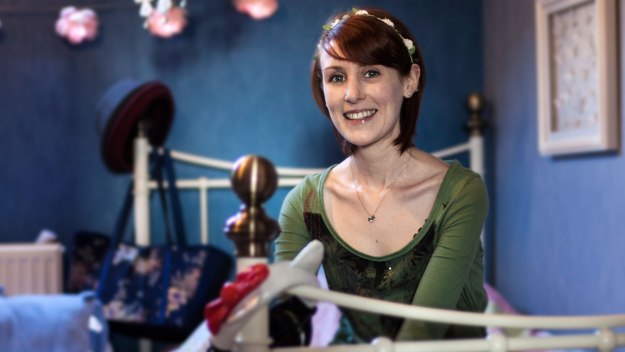
Body image issues for boys
In our featured clip from Obsessed with my Body, we meet a bunch of boys who take their quest for physical perfection to extremes. Want to see more? Check out the whole documentary on All 4.
Poll
Is it normal for boys to be obsessed with their bodies?
In a society where we’re surrounded by wall-to-wall make-up adverts, glossy female fashion mags and pop divas twerking their bits off, you’d be forgiven for thinking that body image issues are a ‘girl thing’. In reality men are also spending millions in their mission to look good, whether it’s racking up gym time and slapping on moisturiser or booking spa sessions, buying cosmetics and heading under the knife. Not convinced? Have a gander at the infographic below to see just how obsessed modern men are about the way they look.
This preoccupation with physical perception can also have a dark side with thousands of guys developing eating disorders and mental health problems as a direct result of their pursuit of beauty. Check out the advice section below the infographic to learn how to spot the signs and seek support if you’re worried.

Body Image Battles
What are the dangers and what can you do about them?
Whilst striving to look your best can boost your confidence and encourage you to live healthily, it can also lead to serious problems. If it becomes an obsession negative body image can lead to all sorts of physical and psychological issues including eating disorders, depression and addiction. Thousands of men are hospitalised every year through body image-related conditions. Learning how to spot the signs and knowing where to go for help can help stop you becoming one of them.
The usual suspects
When you think of eating disorders, terms such as anorexia, bulimia and binge eating probably spring to mind. And, guess what? Blokes can get them too. Check out our article on body image for the lowdown on the different types of eating disorders and how they can affect you.
Big issues
One type of condition in that has is more commonly associated with men than women is Muscle Dysmorphic Disorder (MDD), also commonly known as ‘bigorexia’. Here, rather than being preoccupied with being overweight, people with the condition become obsessed with not being big, muscly or lean enough, often with a distorted perception of their actual size and build. Here’s what you need to know:
Mind games
MDD is a medical condition that works like a kind of ‘reverse anorexia’. It literally causes people to see themselves as smaller and punier in the mirror to how they actually appear in real life. It’s more common than you think too with some experts estimating that as many as one in ten male gym users might be living with the condition.
Tell-tale signs
There are some things you can look out for if you’re worried that you or someone you know might be displaying signs of MDD. These include eating excessively to bulk up or consuming large amounts of protein drinks or spending hours every day at the gym or obsessively lifting weights. Another sign is when everyday life takes a back seat to working out – cancelling social plans, refusing to rest, exercising through illness or injury. Of course, if someone’s negative self-image doesn’t seem to match their physical appearance this is definitely a big red flag.
‘Roid rage
One of the big dangers of MDD is that can often lead to steroid abuse. Steroids are prescription drugs that can be used to increase muscle mass or improve athletic performance. However, they are often sold or shared illegally by people wanting to improve their physique or endurance. Easily available online and through dodgy networks at gyms or sports clubs, steroids can be highly dangerous if used outside of their carefully controlled medical context. Side effects can range from acne, depression, mood swings and paranoia to addiction, heart disease, stroke and infertility.
Tackling the problem
Whether you’re male or female, obsessively shedding weight or dangerously bulking up, it’s crucial to seek help if you’re worried. It is entirely possible to beat eating disorders with the right kind of support but it’s important to seek advice sooner rather than later. Talk to your GP or get in contact with a specialist organisation, website or charity set up to tackle the issue. If that’s too big a step, just open up to a friend, family member or teacher and take things from there. You can find lots of useful resources using the link below.
Where to go for help
Worried about body image, eating disorders or appearance issues? These links and resources might help.




